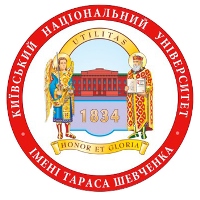THE ETHICS OF USING EUPHEMISMS IN THE ENGLISH-UKRAINIAN TRANSLATION OF SOCIO-POLITICAL TEXTS
DOI:
https://doi.org/10.17721/folia.philologica/2024/8/7Keywords:
English – Ukrainian translation, ethics, euphemisms, socio-political context, socio-political textsAbstract
The article considers the ethics of using euphemisms in the English – Ukrainian translation of socio-political texts. The issue of euphemism in the social and political context from the Ukrainian and foreign researchers` point of view is analysed. The current political situation of a country is inseparably connected with the welfare of its society. An analysis of scholarly works confirms that to achieve adequacy and equivalence in translation and preserve the stylistic and pragmatic nuances of euphemisms in the target language, a translator can use a direct equivalent, employ stylistic transformations, or discard the euphemistic potential of the original vocabulary during the translation process. The competence of political figures and participants in political communication on the international stage, as well as within the state, allows for the dissemination of ideas, the establishment of connections, the promotion of civic engagement, and the ability to influence people's ways of thinking and behavior. It is stated that euphemization is a mandatory condition for politically correct speech in intercultural communication. Since the evolution of euphemistic potential is directly related to the characteristics of culture, euphemistic vocabulary is an unstable component of the language system, complicating the process of translation into the target language. Furthermore, over time, the pragmatic potential of euphemisms tends to change, acquiring the characteristics of the concepts they are used to denote. Euphemia, as a multidimensional and dynamic phenomenon, is extensively studied within various approaches, particularly in the context of translation. An analysis of speeches by contemporary American politicians shows that euphemisms are widely used to describe social, economic, and political issues. They help highlight the positive aspects of government actions or avoid addressing complex issues without losing their influence on the audience. At the same time, euphemisms reduce emotional tension, ensuring an attenuated approach to the conveyed and rendered information.
References
Batsevych, F. (2004). Osnovy komunikatyvnoyi linhvistyky: pidruchnyk. [Fundamentals of Communicative Linguistics: textbook]. Kyiv [in Ukrainian]
Velykoroda, V. (2013). Kontseptualʹni kharakterystyky evfemizmiv na poznachennya nehatyvnykh diy politykiv [Conceptual Characteristics of Euphemisms Denoting Negative Actions of Politicians]. Visnyk Zhytomyrsʹkoho derzhavnoho universytetu imeni Ivana Franka – Bulletin of Zhytomyr Ivan Franko State University, 2, 51–54 [in Ukrainian].
Velykoroda, V. (2008). Semantychni ta funktsionalʹno-prahmatychni kharakterystyky evfemizmiv v anhliysʹkiy movi : dys. … kand. filol. nauk : 10.02.04. [Semantic and Functional-Pragmatic Characteristics of Euphemisms in the English Language: Ph.D. diss. in Philology: 10.02.04]. Lviv [in Ukrainian].
Korunets, I. (2011). Teoriya i praktyka perekladu (aspektnyy pereklad): pidruchnyk [Theory and practice of translation (aspect translation)]. Vinnytsia : Nova knyha [in Ukrainian].
Lut, K. (2015). Mizhmovna korelyatsiya evfemizmiv u suchasnomu ekonomichnomu dyskursi [Interlingual Correlation of Euphemisms in Contemporary Economic Discourse]. Naukovyy visnyk Mizhnarodnoho humanitarnoho universytetu – Scientific Bulletin of the International Humanitarian University, 15, 144–146 [in Ukrainian].
Milyeva, I. (2004). Evfemizm – dysfemizm – peryfraza [Euphemism – Dysphemism – Periphrasis]. Visnyk Khmelʹnytsʹkoho natsionalʹnoho universytetu – Bulletin of Khmelnytskyi National University, 42, 63–72 [in Ukrainian].
Myazova, I. (2006). Osoblyvosti tlumachennya ponyattya «mizhkulʹturna komunikatsiya» [Features of the Interpretation of the Concept of «Intercultural Communication»]. Filosofsʹki problemy humanitarnykh nauk – Philosophical Problems of Humanities, 8, 108–113 [in Ukrainian].
Payonkyevych, K. (2014). Linhvistychnyy fenomen «evfemizm» ta yoho funktsiyi [Linguistic Phenomenon of «Euphemism» and Its Functions]. Odesʹkyy linhvistychnyy visnyk – Odesa Linguistic Bulletin, 4, 206–209 [in Ukrainian].
Stasyuk, O. (2012). Sotsiolinhvalʹni ta funktsionalʹno-prahmatychni kharakterystyky evfemizmiv i dysfemizmiv u parlament·sʹkiy komunikatsiyi FRN ta Shvetsiyi : avtoref. dys. … kand. filol. nauk: 10.02.04. [Sociolinguistic and Functional-Pragmatic Characteristics of Euphemisms and Dysphemisms in Parliamentary Communication of Germany and Sweden: Ph.D. diss. in Philology: 10.02.04]. Kyiv [in Ukrainian].
Tkachyk, O., Babayev, T. (2014). Anhliysʹki evfemistychni neolohizmy v publitsystychnomu styli ta yikh pereklad ukrayinsʹkoyu [English Euphemistic Neologisms in Journalistic Style and Their Translation into Ukrainian]. Visnyk NTUU “KPI” – Bulletin of NTUU “KPI”, 3, 52–59 [in Ukrainian].
Allan, K., & Burridge, K. (1991). Euphemism and dysphemism: language used as shield and weapon. New York: Oxford University Press, 1991.
Kosharnyi, K., & Povoroznyuk, R. (2024). The use of euphemisms in the English – Ukrainian translation of sociopolitical texts. International Scientific Conference Ukrainian Humanities in the Coordination of Modern Time. Kyiv: Taras Shevchenko National University of Kyiv, 55–57.
Povoroznyuk, R. (2022). Psycholinguistic aspects of teaching community interpreting in Ukraine. Astra Salvensis, 1, 493–509.
President Biden: What America Will and Will Not Do in Ukraine (2024). The New York Times. Retrieved from: https://www.nytimes.com .
Rawson, H.A. (2003). Dictionary of Euphemisms and Other Doubletalk. London.
Remarks by National Economic Advisor Lael Brainard on Sustaining American Auto Leadership (2024). Retrieved from: Remarks by National Economic Advisor Lael Brainard on Sustaining American Auto Leadership | The White House.
Remarks by President Biden on the United Efforts of the Free World to Support the People of Ukraine. The White House (2024). Retrieved from: https://www.whitehouse.gov/briefing-room/speeches-remarks/2022/03/26/remarks-bypresident-biden-on-the-united-efforts-of-the-free-world-to-support-the-people-of-ukraine
Remarks by Vice President Harris at a Campaign Event (Pittsburgh, PA) (2024). Retrieved from: Remarks by Vice President Harris at a Campaign Event | Pittsburgh, PA | The White House
Slavova, L. (2020). Discursive Strategies of Politicians through the Prism of Translation. Translation and Power, eds. Peter Lang GmbH, Internationaler Verlag der Wissenschaften. Berlin, Bern, Wien, 297–303.
Zastrovsky, O. (2009). Leksychni transformatsiyi yak perekladatsʹkyy pryyom [Lexical Transformations as a Translation Technique]. Nova filolohiya – New Philology, 34, 273–277 [in Ukrainian].
Warren, B. (1992). What Euphemisms Tell Us about the Interpretation of Words. Studia Linguistica (New Jersey), 46, 128–172.









